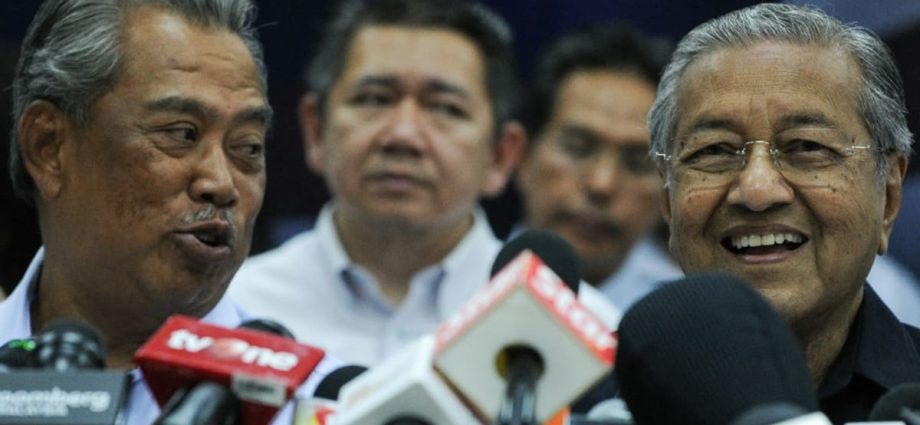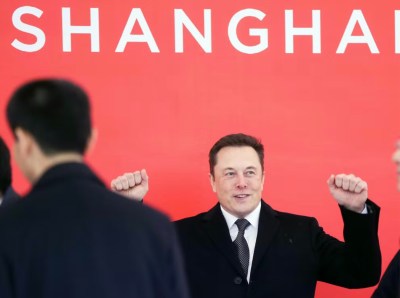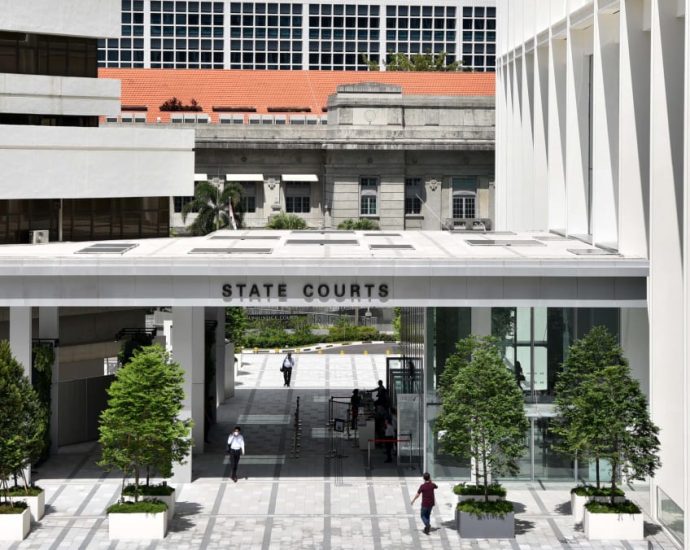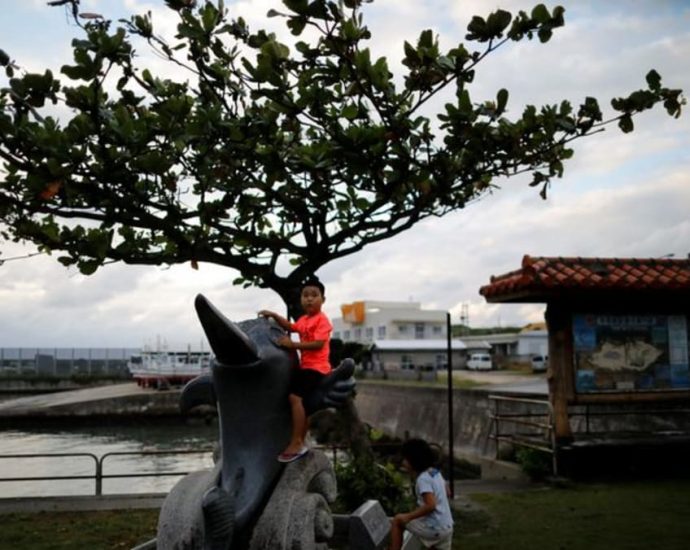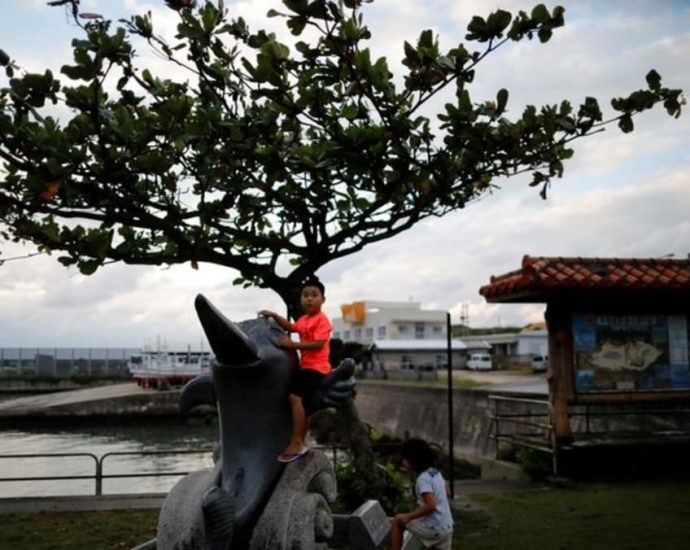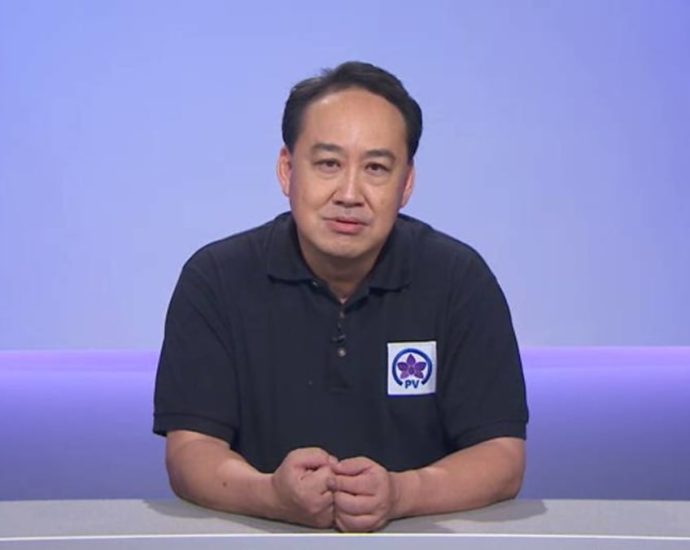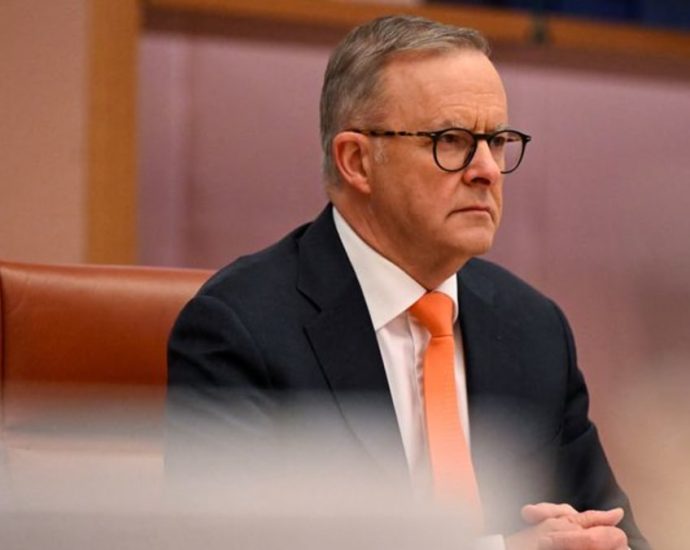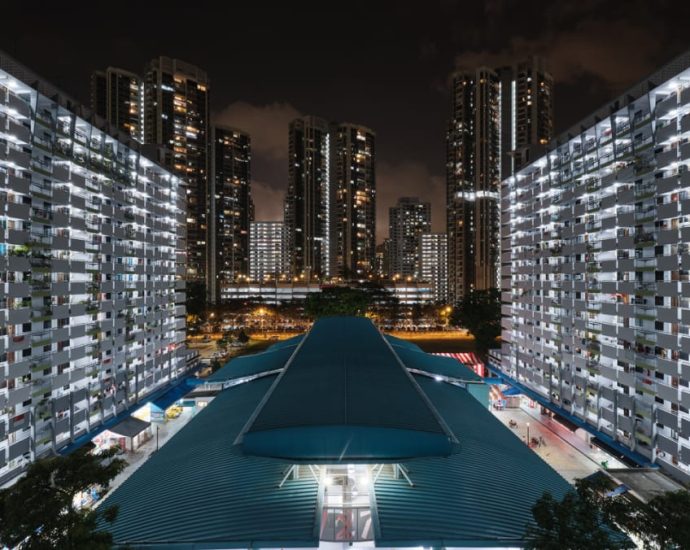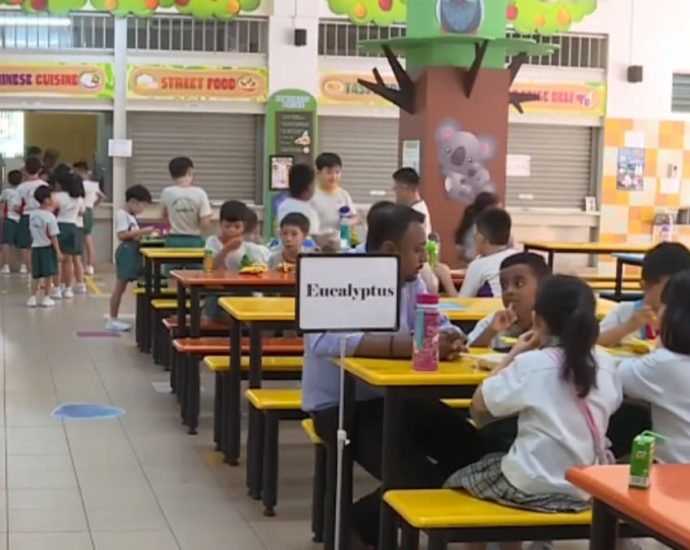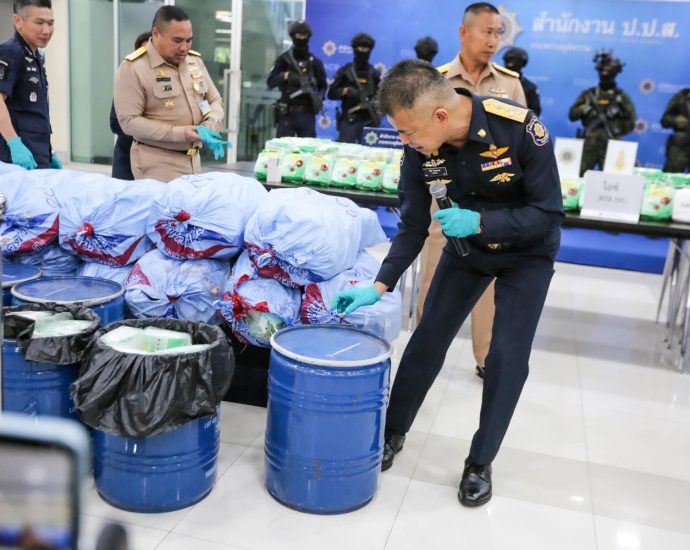Mahathir says ready to work with Muhyiddin for Malay cause
Dr Mahathir and Muhyiddin formed the Parti Pribumi Bersatu Malaysia (Bersatu) in 2016. Dr Mahathir was appointed chairman while Muhyiddin became president of the party. Bersatu then worked with the Pakatan Harapan (PH) coalition in the 14th General Election in 2018 and ousted Barisan Nasional from government. However, Dr MahathirContinue Reading
Elon Musk tears up the decoupling script in China
As the global economic intelligentsia debates how to “decouple” or “de-risk” from China, Elon Musk clearly didn’t get the memo.
The Tesla founder was feted like a returning king in Beijing this week. From the moment his private jet arrived on Tuesday, Musk is reportedly being called “Brother Ma,” putting him in rarified league with Alibaba billionaire Jack Ma.
There are many takeaways from Musk’s first China visit in three years. One is that not everyone is decoupling from China, least of all the globe’s most influential electric vehicle (EV) evangelist and owner of Twitter. Another: the future of EV production and innovation is shifting toward Asia’s biggest economy.
Yet the most important one may be how Beijing is putting out a huge welcome mat for foreign chieftains – from Musk to JPMorgan Chase’s Jamie Dimon – to signal that China really is open for business again.
The perception that China is becoming hostile toward foreign capital intensified after Ma ran afoul of Xi Jinping’s regulators in late 2020.
In March, China’s leader installed a new premier, Li Qiang, to take the lead in changing that narrative. And what better way than Musk visiting China and reaffirming his commitment to producing more Teslas in mainland factories?
Of course, Li and Ma go way back. It was Li, back in his days as Shanghai party boss, who lobbied Musk to open a Tesla “gigafactory” in the city. The facility, which opened in April 2022, was Tesla’s first outside the US.
Now, here is Musk, controversial as he is, hinting at an even bigger production presence in China. In 2022, Tesla contributed roughly one-quarter of Shanghai’s overall total automotive production.
The next objective for local governments around China: angling for closer ties with Tesla to win some of those jobs as Musk looks to expand his autonomous driving fleet and sales to Chinese consumers.
It’s just what Li’s image makers might have hoped for as Tesla looks to “aggressively focus on building out its China footprint,” says analyst Daniel Ives at investment firm Wedbush.
Even though China has its own promising EV companies, including BYD Co, Musk understands that Xi’s nation has become “the golden goose EV market,” Ives says. As such, Tesla’s mainland plant is now the “heart and lungs” of Musk’s global production.
Musk is also giving Xi and Li a big public relations win in another way. At his meeting Tuesday with Foreign Minister Qin Gang, Musk gave the thumbs down to Washington’s decoupling from China strategy. Musk said, effectively, that the relationship between the two biggest economies is too symbiotic to fail.

This is music to Li’s ears as China welcomes a who’s-who of multinational company chieftains. In recent days, top officials from Starbucks Corp, Jardine Matheson, Franklin Templeton and UK chip software giant Arm Ltd dropped by. Later this month, Nvidia Corp CEO Jensen Huang is reportedly coming to town.
The frenetic pace of these meetings comes as China’s foreign direct investment experiences an ill-timed U-turn. In the first three months of the year, roughly US$30 billion zoomed away from China. Stock investors are pivoting elsewhere, too. Since its 2021 high, the MSCI China Index has lost more than half of its value.
On the debt side, China “suffered outflows” in April to the tune of $3.8 billion “as the positive effect of the Covid reopening fades away,” says economist Jonathan Fortun at the Institute of International Finance.
Hence the urgency to dispel the gathering notion that China’s leadership is in an anti-foreigner sentiment phase. Xi chose Li to lead the China-is-open-for-business repair effort.
First, there’s a matter of improving the odds of reaching a 5% economic growth rate this year. Analyst Kelvin Wong at OANDA notes that the latest reading from China’s Purchasing Managers Index (PMI) data “further reinforced an increasing slowdown in external demand and lackluster internal domestic demand ex-post re-opening from Covid-19 stringent lockdowns.”
On closer inspection, Wong notes, the data “indicated a risk of a deflationary spiral at play.” The input cost – main raw material purchase prices – sub-component of the manufacturing PMI declined at the fastest pace in May since July 2022 – 40.8 versus 46.4 – while the output cost sub-component fell for the third consecutive month and recorded its steepest decline for ten months in May to 41.6 from 44.9.
The bottom line, Wong says, is Beijing needs to halt the narrative about “the risk of the deflationary spiral in China.”
Economist Lu Ting at Nomura International added that “the sharper contraction in the manufacturing PMI suggests that the risk of a downward spiral, especially in the manufacturing sector, is becoming more real.”
Others are more sanguine. Some economists argue that China Beige Book data shows that manufacturing activity may be perking up.
Goldman Sachs China economist Hui Shan says recent trends in China’s emerging industries PMI seem a “tentative sign that manufacturing activity may begin to stabilize.”
At the same time, a “loss of economic momentum amid weakening demand both at home and abroad” is getting harder for Premier Li’s team to ignore, says economist Carlos Casanova at Union Bancaire Privée.
Li, Casanova notes, has “vowed more targeted measures to expand domestic demand and stabilize external demand earlier in May, in an effort to promote a sustained economic rebound, but it remains to be seen whether these will be effective.”

Yet Li is also focused on structural reforms needed to restore investor confidence. Here, Musk’s timing could not be better.
In recent weeks, Beijing basked in the glow of global headlines over China surpassing Japan as the world’s biggest exporter of autos for the first time. Some of that dynamic reflects China’s embrace of EVs, while Toyota Motor and many Japan Inc peers stick with hybrid vehicles.
The narrative shift followed an earlier Li era victory: a move to break up Alibaba Group into six units – and founder Ma’s return to China after a long absence. Alibaba’s structural shakeup was a win for reformers and a vital gesture to reassure global investors that the regulatory crackdown on Big Tech is finished.
Since then, analysts like Kelvin Ho at Fitch Ratings have noted how “this could boost Alibaba’s credit strength if capital is freed up from businesses that generate little cash and deployed in stronger cash-generating businesses or used to pay down debt.”
The hope, too, is that Alibaba’s example could become a model for other internet giants in harm’s way, including Baidu, ByteDance, Didi, Tencent and others. If so, it would unlock value in China’s biggest service sector companies, enticing global investors.
Both Xi and Li surely appreciate Musk’s firm rejection of the idea that the US and China can thrive economically separately.
As economists at Allianz argue in a note to clients: “The economic implications of a further decoupling between the West and China could be far-reaching,” noting that the fallout for China’s economy could be “far from negligible.”
“China,” they argue, “could retaliate by curtailing the supply of critical raw materials in which it has a dominant position, which could severely disrupt global supply chains. But this is unlikely as it already applies some forms of outbound investment restrictions and is still looking towards economic pragmatism.”
At the margin, though, Musk’s doubling down on China and offering an alternative to the loud decoupling debate have given Beijing one of the best weeks of global headlines it’s had in some time.
Follow William Pesek on Twitter @WilliamPesek
Man in Singapore on tuition grant and MOE bond used forged documents to extend stay, gets jail
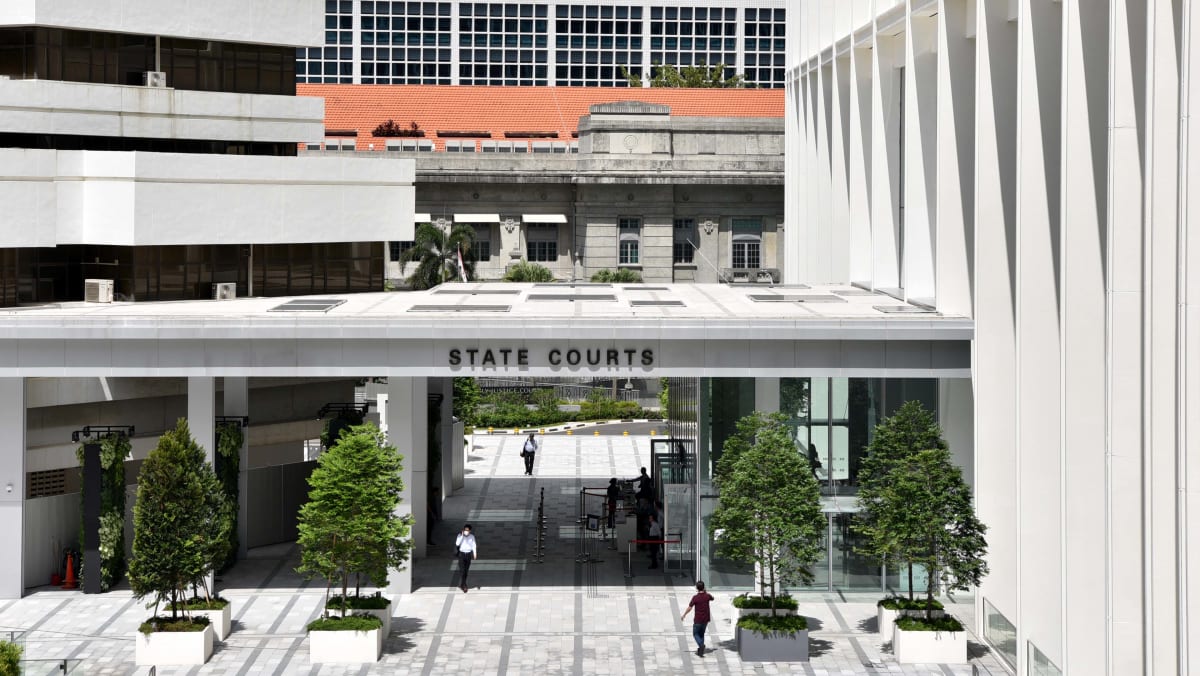
SINGAPORE: A Malaysian who came to Singapore on a Ministry of Education (MOE) tuition grant for his undergraduate studies at the National University of Singapore (NUS) completed his studies and his three-year bond, but wanted to extend his stay.
He used forged documents from NUS and MOE in order to get the Immigration and Checkpoints Authority (ICA) to extend his long-term visit pass, but was foiled when MOE noticed irregularities.
Magendran Muniandy, 34, was jailed for 20 weeks on Friday (Jun 1) for his crimes.
He had claimed trial but was convicted of three charges of using forged documents.
The court heard that Magendran was awarded a tuition grant by MOE in 2008 for a course in Science at NUS. He signed the MOE Tuition Grant Agreement, which required him to serve a bond with MOE upon completion of his undergraduate studies.
He was required to be employed in Singapore for three years.
Magendran obtained a Bachelor of Science degree in June 2011. He worked for the Life Sciences Institute of NUS for three years – between August 2014 and August 2017.
He was given an employment pass that was terminated on Aug 18, 2017, the day his three-year bond ended.
After his employment pass was terminated, Magendran applied for and was given a long-term visit pass for a year. Based on ICA’s records, the pass was issued to him in August 2017 and expired a year later.
In April 2018, Magendran sent an email to MOE asking for a copy of the agreement and a supporting letter from MOE so he could apply for an extension of his long-term visit pass, lying that he had not served his bond.
A senior executive responded to Magendran and asked about his employment history.
In his response, he claimed that he was hired by Proctor & Gamble and sent to Japan to work. He claimed that the plan was for him to work there for one-and-a-half years before returning to Singapore, but claimed that he had to work there for longer due to “organisational changes”.
He then claimed that he quit his job in Japan and returned to Malaysia or Singapore to find employment, but discovered that his bond was “yet to be served”.
“Therefore, I would like to take the initiative to serve my bond asap,” wrote Magendran.
He later lied that he had worked as a research assistant with NUS for only two months in early 2018 – even though he had worked for NUS for three years and effectively completed his bond.
In his bid to extend his long-term visit pass, Magendran used three forged documents as genuine. This includes a “letter of support for extension of long-term visit pass” purportedly issued by MOE, which he gave to ICA.
He also presented an image to MOE which showed the date of issue and date of expiry of a visit pass purportedly issued by ICA. He also showed a letter of acknowledgement purportedly issued by NUS to MOE.
After receiving the forged NUS acknowledgement letter, MOE conducted internal checks on Magendran’s employment history and realised that he had been given an employment pass with NUS for three years.
MOE contacted NUS, who confirmed the same and said the acknowledgement letter that Magendran had provided to MOE was not from them.
The senior executive had missed the irregulaties in the date of issue and expiry in the image Magendran had submitted, but later took a closer look and realised the dates were off.
Because Magendran had already worked in Singapore for three years, MOE discharged him from the bond and informed ICA that MOE would be revoking the original MOE support letter.
ICA later filed a police report.
Magendran had contested the charges, claiming that he had not submitted the forged MOE support letter to ICA, nor the forged NUS acknowledgment letter to MOE.
He said he had submitted the image showing his visit pass to MOE but said he did not know the information was inaccurate.
He pointed the finger at the officers working for MOE and ICA, accusing them of concocting documents to incriminate him.
The penalties for using a forged document as genuine are a jail term of up to four years, a fine, or both.
Japan to issue special bonds aimed at supporting childcare
TOKYO: Japanese Prime Minister Fumio Kishida said on Thursday (Jun 1) that the government would issue special bonds aimed at filling a projected funding gap as it boosts childcare support towards 2030. Speaking at a government panel meeting, Kishida also said the government would not take on additional financial burdensContinue Reading
Japan to issue special bonds aimed at supporting child care
TOKYO: Japanese Prime Minister Fumio Kishida said on Thursday (Jun 1) that the government would issue special bonds aimed at filling a projected funding gap as it boosts childcare support towards 2030. Speaking at a government panel meeting, Kishida also said the government would not take on additional financial burdensContinue Reading
4 opposition parties form alliance to contest in Singaporeâs next General Election
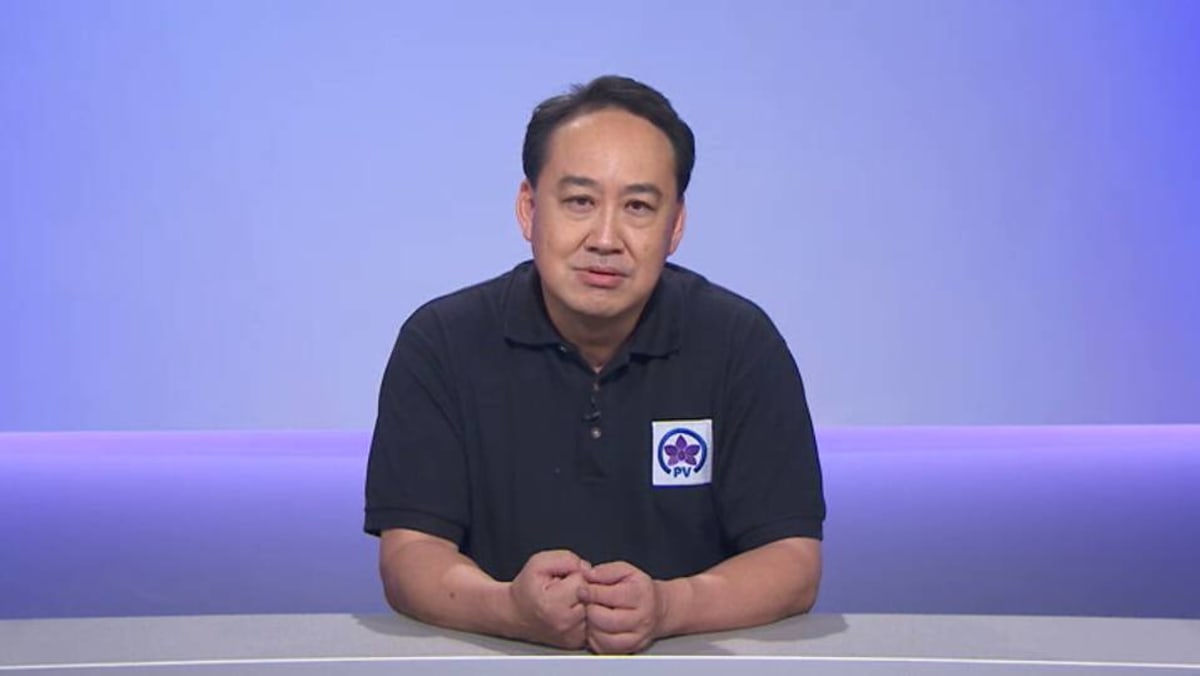
SINGAPORE: Four opposition parties in Singapore have formed an alliance called the People’s Alliance to contest the next General Election, said lawyer and politician Lim Tean on Thursday (Jun 1).
The four parties consist of the Peoples Voice, Reform Party, People’s Power Party and Democratic Progressive Party.
Singapore’s next General Election must be held by 2025.
Mr Lim, who is the leader of Peoples Voice, added that the four parties had been in discussions to form an alliance since January.
“Past attempts to forge an alliance of the opposition parties, most recently in 2018, when seven parties came together for talks, unfortunately went nowhere,” said Mr Lim in a Facebook post.
“We have heeded the calls of Singaporeans and decided that the time for talking about opposition unity without the formation of an alliance, is long past.”
Acting PM Lawrence Wong to meet Anthony Albanese in Singapore for 8th Annual Leadersâ Meeting

SINGAPORE: Australia’s Prime Minister Anthony Albanese will make a three-day working visit to Singapore from Jun 1 to Jun 3, during which he will meet Acting Prime Minister Lawrence Wong.
Mr Albanese will be in Singapore for the 8th Singapore-Australia Annual Leaders’ Meeting, said Singapore’s Ministry of Foreign Affairs on Thursday (Jun 1).
Prime Minister Lee Hsien Loong and Mr Albanese met in October 2022 in Canberra, where the two countries signed the Singapore-Australia Green Economy Agreement.
Mr Lee said in a Facebook post on Thursday he had tested positive for COVID-19 again due to a “COVID rebound”.
The Prime Minister, who is 71, added that he is still infectious although the risk is not high compared to the initial infection. He said his doctors have advised him to isolate himself until he tests negative using an antigen rapid test.
Mr Lee will recuperate at home, said the Prime Minister’s Office in a statement on Thursday afternoon.
In his absence, Mr Wong, who is Singapore’s Deputy Prime Minister, will be Acting Prime Minister. He will host Mr Albanese for the 8th Singapore-Australia Annual Leaders’ Meeting on Friday.
The Annual Leaders’ Meeting is part of the Singapore-Australia Comprehensive Strategic Partnership, which was established in 2015.
The meeting is a key platform for both prime ministers to discuss bilateral cooperation and exchange views on regional and international developments, said MFA in its press release.
Mr Albanese will receive a ceremonial welcome at the Istana on Friday. He will then call on President Halimah Yacob and hold the Annual Leaders’ Meeting with Mr Wong.
Mr Wong will host an official lunch, and Mr Albanese will have a new orchid hybrid named in his honour, said MFA.
Mr Albanese will also deliver the keynote address at the 20th edition of the Shangri-La Dialogue organised by the International Institute for Strategic Studies the same evening.
Warm, humid nights expected in first half of June: Met Service
SINGAPORE: Warm weather is expected in the first half of June with the onset of southwest monsoon conditions, the Meteorological Service Singapore (Met Service) said on Thursday (Jun 1). Temperatures of up to 35 degrees Celsius can be expected during the day, while the temperature may stay above 29 degreesContinue Reading
New nutrition guidelines for children aim to help schools prepare healthy meals in appropriate portions
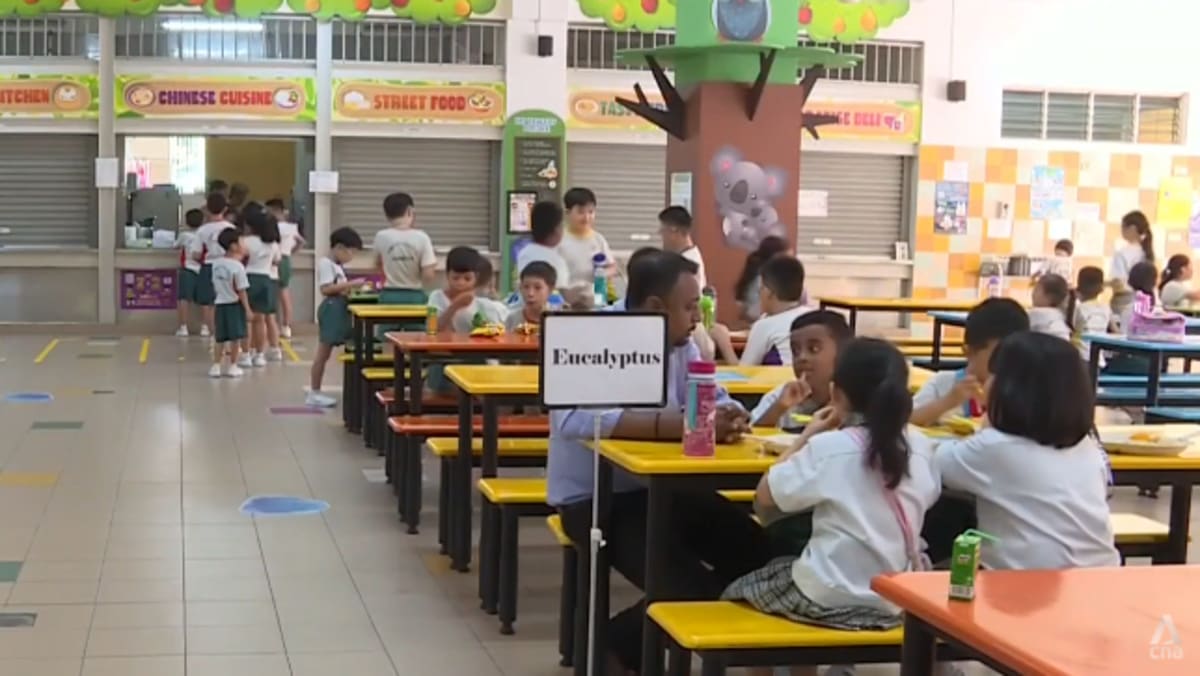
Serving some 24,000 children each year, the firm said it hopes the new guidelines can further enhance both its in-house and outsourced meals.
“With the new standard, because of stronger understanding and the alignment of expectations, we will be able to find food providers who will be readily able to provide food with the quality that we need,” said the preschool chain’s general manager Thian Ai Ling.
BOOSTING INDUSTRY STANDARDS
Some firms in the catering industry are already gearing up to adopt these guidelines.
The Singapore Manufacturing Federation, which oversees 150 food and beverage providers, said it is actively encouraging members to do so and help boost industry standards.
“For infants and children, food safety is of paramount importance given their vulnerability in this age group,” said the federation’s council member Audrey Yap.
“The standard addresses this by looking at food and beverage (F&B) players who want to get involved with serving these particular needs, and to ensure that (food produced) is age-appropriate.”
Ms Yap said she is confident that caterers will be quick to adopt the guidelines as that would give them an edge in their business.
“With this awareness of (children’s) nutritional needs … consumers could be more selective, more targeted, more specific in what they want to eat, and also looking for a healthier lifestyle,” said Ms Yap.
“Accordingly, F&B businesses that step up to the plate and are able to address this sector very quickly, effectively and efficiently, will see a return on investment.”
900kg of crystal meth seized from fishing trawler
Six arrested with shipment believed destined for Australia on boat off Koh Samet

Authorities have arrested six drug smugglers and seized 909 kilogrammes of crystal methamphetamine, believed to be destined for Australia, from a fishing trawler south of Koh Samet in the Gulf of Thailand.
The seizure was the culmination of a four-month operation that began with an intelligence report from the National Security Council (NSC), according to Wichai Chaimongkhon, secretary-general of the Narcotics Control Board (NCB).
The NSC had learned that transnational drug traffickers were using medium-sized trawlers to deliver shipments of methamphetamine and heroin, weighing about a tonne, to a large liner in the middle of the Gulf. The deliveries took place in international waters, beyond the reach of Thai law enforcement.
The NCB set up a special task force, in cooperation with the Naval Special Warfare Command or SEALs, which spent four months monitoring the activities of the suspected traffickers, said Mr Wichai.
On Tuesday of this week, team members on a stakeout in Rayong spotted the crew of a trawler loading empty stainless steel barrels, fuel and food. At 8.45 that night, a white pickup truck pulled up and the crew loaded several heavy fertiliser sacks onto the trawler before it set out from shore.
The team began following the boat and intercepted it south of Koh Samet in Rayong province, about 20 nautical miles from shore.
Six suspects were arrested with 909 kilogrammes of crystal methamphetamine seized, Mr Wichai said at a briefing on Thursday at the NCB offices in Din Daeng district of Bangkok.

Officers inspect the fishing trawler on which drugs were seized and six smugglers arrested. (Photo: Narcotics Control Board)
Authorities later searched seven locations — five in Rayong and two in Bangkok. During the search, they seized one fishing trawler, six cars, two motorcycles, bank account passbooks, ATM cards and other assets with a combined worth of at least 5.2 million baht.
Officers also searched a rented house in Rayong that was used as a storage site for drugs. Many empty fertiliser sacks were found there.
During questioning, the suspects admitted to having smuggled the drugs from Bangkok to the fishing trawler in Rayong. A bag of ketamine, for the crew’s personal use, was also found in the vessel.
One of the suspects who was the boat owner said the seized drugs were about to be loaded onto a large liner headed for Australia.
Mr Wichai said the NCB would widen the investigation to seize assets of all those involved in the smuggling operation.

Sacks and barrels containing 909kg of crystal methamphetamine seized from the fishing trawler off Koh Samet are displayed for a briefing on Thursday. (Photo: Narcotics Control Board)

